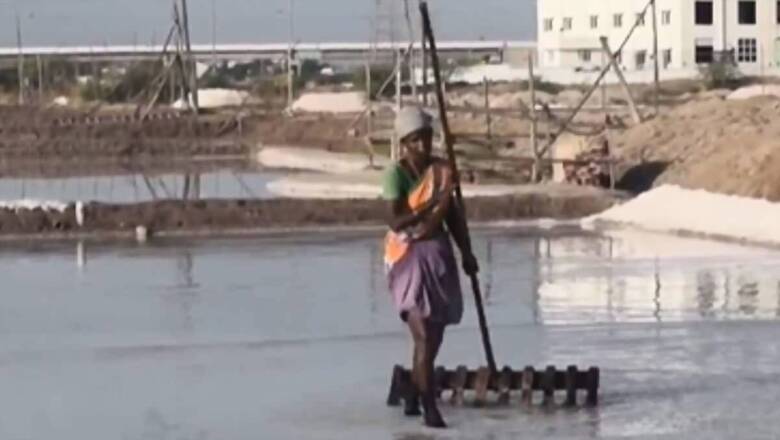
views
In Tamil Nadu’s Thoothukudi, which has access to the Bay of Bengal, many industries related to marine resources such as fishing, conch bathing and salt brewing are the main sources of income here. Let’s take a look at how salt manufacturing work is done in Thoothukudi.
Salt is extracted from seawater with the help of the sun in a method called salt distillation without any chemical aid. Salt distillation is a phase separation method that uses heat to separate salt from water. For this, seawater is first piped in from the sea to the sectioned beds where the salt is produced.
The seawater that arrives in these square beds is dredged for 15 days to produce salt. After 15 days, the salt is produced, and the salt is taken separately from those beds. Once the salt is extracted separately, it is taken for packing.
According to the employees in Thoothukudi, involved in salt manufacturing, “Salt is produced from the seawater that comes to the beds from the sea. Then they start working at Uppalam from 3 am. Also, no work is done in the salt during the rainy season because when it rains, the salt is not produced through the rainwater. So we don’t have any work in the rainy season, and we don’t have any work in Uppalam for 4 months from December. Due to this, there are problems in our livelihood.”
Thoothukudi is known as “Pearl City” due to the pearl fishing carried out in the town. It is a commercial seaport that serves the inland cities of southern India and is one of the sea gateways of Tamil Nadu. It is also one of the major seaports in India, with a history dating back to the 6th century CE.
The majority of the people in Thoothukudi are employed in salt pans, sea-borne trading, fishing, and tourism. The 21 islands between Thoothukudi and Rameswaram shores in the Gulf of Mannar are noted as the first Marine Biosphere Reserve of India and have around 36,000 species of flora and fauna. This protected area is called the Gulf of Mannar Marine National Park.



















Comments
0 comment